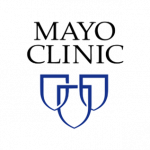18th to 19th March 2022, Coronado, CA, US, or online.
This course focuses on case-based and didactic presentations from Mayo Clinic and other international experts in the treatment of the whole spectrum of gastrointestinal (GI) cancers, including esophageal, gastric, hepatocellular, pancreatic, small bowel, bile duct, anal and colorectal, and gallbladder.
The primary goal of this course is to guide practicing physicians on integrating the best and most current evidence into day-to-day routine care for patients with GI cancers. This course brings a practical perspective on how to optimize multidisciplinary care for some of the more complex clinical management decisions. Topics discussed include locoregional modalities, the role of minimally invasive procedures, and state-of-the-art radiation modalities.
Please note that LIVE course attendees must:
- Provide proof of vaccination prior to event admission. You must be logged in to ce.mayo.edu to provide proof of vaccination.
- Complete COVID-19 testing and provide attestation that a negative test result was received within 72 hours or less of the event start date or provide attestation that you received a lab-confirmed positive COVID-19 test result within the previous 90 days, that it has been at least 10 days since the positive test result, and that you are currently asymptomatic. You must be logged in to ce.mayo.edu to complete your attestation.
Learners who do not fulfill the above requirements will be unable to attend the live (in-person) event.
Requirements and guidelines may be amended as CDC, public health and other relevant guidance are adjusted.
Target Audience
This course is designed for medical, radiation and surgical oncologists; gastroenterology surgeons, gastroenterologists and hepatologists involved in cancer care; interventional radiologists; pharmacists; nurse practitioners; physician assistants; and nurses. Other healthcare professionals involved in the care of patients diagnosed with GI malignancies may benefit from this program.
Learning Objectives
Upon completion of this activity, participants should be able to:
- Interpret the most up-to-date and practice-relevant data presented in 2021 and 2022.
- Integrate evidence-based interdisciplinary treatment strategies into clinical practice in various fields of medical oncology.
- Determine the usefulness of genomic and immune-based treatment approaches in oncology.
- Review the current and future role of immunotherapy strategies in various GI malignancies.
- Select the appropriate treatment strategy for patients with early stage cancers of GE junction, rectum, pancreas, and liver.
- Identify ideal patients with neuroendocrine tumors that would be candidates for radionuclide therapy.
- Describe the molecular biology and genetics of colorectal cancers.
- State the appropriate regimens for sequencing therapies across multiple GI malignancies.
Attendance at any Mayo Clinic course does not indicate or guarantee competence or proficiency in the skills, knowledge or performance of any care or procedure(s) which may be discussed or taught in this course.
Date: 18th to 19th March 2022 Location: Hotel del Coronado Livestream attendance option also available For more information and detailed program visit the website.
Coronado, California
Published in GI-Mail 02/2022 (English edition).
- Do you already know our monthly newsletter GI-Mail with useful tips on postgraduate courses?
Sign up here. - Are you looking for vacancies or new career challenges? Here you will find the latest vacancies and job offers.
- Do you already know our monthly job-information GI-Jobs with current job offers for doctors, managers and nurses? Sign up here.
- Are you interested in up to date postgraduate courses and CME? In our education database »medicine & health« you will find new education events from over 2300 organizers.

